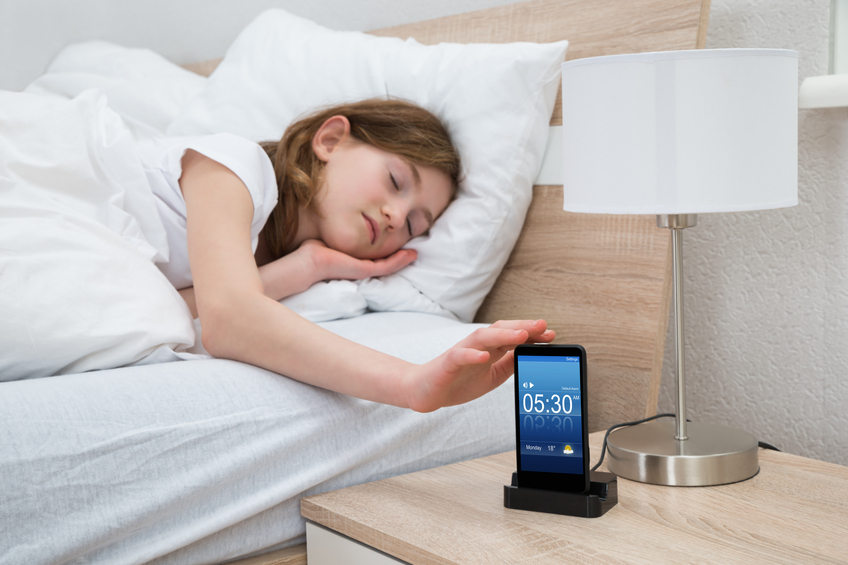
Children as young as nine are so dependent on their mobile phones that they check their devices repeatedly throughout the night because of the “fear of missing out”, researchers have found.
Pupils said they risked turning up for school tired and unable to concentrate due to the notifications from their mobile devices while they were in bed, with one-tenth of those polled checking their phones at least 10 times a night.
The study into children’s technology usage – the first of its kind involving English state and private school pupils at night time – found almost half of 11 to 18-year-olds admitted checking social media accounts such as Snapchat, Facebook and YouTube when they should be sleeping.
But Digital Awareness UK (DAUK), who worked on the survey with the Headmasters’ and Headmistresses’ Conference (HMC), said they found anecdotal evidence from classrooms of children as young as nine checking their phones at least 10 times a night.
Asked about the phenomenon of the fear of missing out – typically referred to as “FOMO” on social media – Charlotte Robertson, DAUK co-founder, said: “The youngest (child checking their devices at least 10 times a night) is about nine, and many parents are very unaware of it.
“One of the biggest topics around at the moment is excessive social media consumption and how it is affecting our physical and emotional well-being.
“A lot of them are waking up sometimes with over 100 notifications from conversations that have happened overnight.
“They want to be that person that is responding at 1am, and seen to be quite cool, to make sure they catch the joke – it’s a huge driver, that anxiety of wanting to know what’s happened.”
The study of 2,750 pupils found that 25% of students say they feel tired during the day because of how often they use their mobile device at night.
Some 68% said going on their mobiles at night affected their school work, while 32% of children with the most excessive use said their parents were unaware of their nocturnal habits.
And the online safety organisation suggested having a “digital detox” and putting mobile devices away for 90 minutes before lights-out or keeping them out of the bedroom.
HMC chairman Mike Buchanan said: “The data suggests those who do check their phones, they’re mostly driven by not wishing to miss out.
“Clearly there are some times when children are not concentrating because they are tired, and that has an obvious impact on their ability to keep up with what’s going on – there is a desire to stay within the group.
“It’s not that this (technology) is all horrible and terrible and that we should all be wringing our hands.
“It is more a case that here’s the reality, let’s use it and try to influence the use of technology in a positive way.”
READ MORE
Rise in mental health issues and cyber-bullying among young people, says new report
Digital convenience can carry some risks

Enjoy the convenience of having The Sunday Post delivered as a digital ePaper straight to your smartphone, tablet or computer.
Subscribe for only £5.49 a month and enjoy all the benefits of the printed paper as a digital replica.
Subscribe